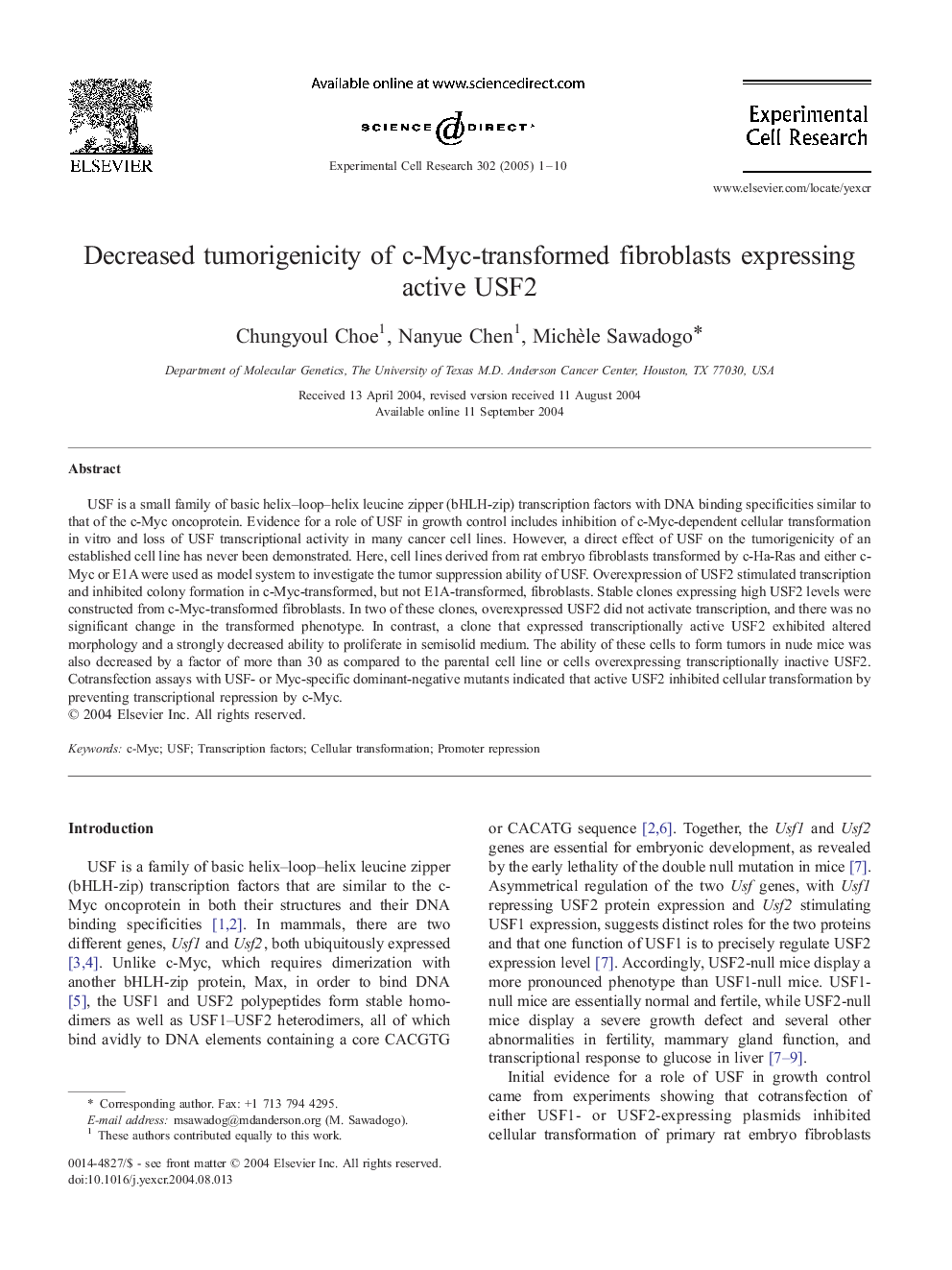| Article ID | Journal | Published Year | Pages | File Type |
|---|---|---|---|---|
| 10905648 | Experimental Cell Research | 2005 | 10 Pages |
Abstract
USF is a small family of basic helix-loop-helix leucine zipper (bHLH-zip) transcription factors with DNA binding specificities similar to that of the c-Myc oncoprotein. Evidence for a role of USF in growth control includes inhibition of c-Myc-dependent cellular transformation in vitro and loss of USF transcriptional activity in many cancer cell lines. However, a direct effect of USF on the tumorigenicity of an established cell line has never been demonstrated. Here, cell lines derived from rat embryo fibroblasts transformed by c-Ha-Ras and either c-Myc or E1A were used as model system to investigate the tumor suppression ability of USF. Overexpression of USF2 stimulated transcription and inhibited colony formation in c-Myc-transformed, but not E1A-transformed, fibroblasts. Stable clones expressing high USF2 levels were constructed from c-Myc-transformed fibroblasts. In two of these clones, overexpressed USF2 did not activate transcription, and there was no significant change in the transformed phenotype. In contrast, a clone that expressed transcriptionally active USF2 exhibited altered morphology and a strongly decreased ability to proliferate in semisolid medium. The ability of these cells to form tumors in nude mice was also decreased by a factor of more than 30 as compared to the parental cell line or cells overexpressing transcriptionally inactive USF2. Cotransfection assays with USF- or Myc-specific dominant-negative mutants indicated that active USF2 inhibited cellular transformation by preventing transcriptional repression by c-Myc.
Related Topics
Life Sciences
Biochemistry, Genetics and Molecular Biology
Cancer Research
Authors
Chungyoul Choe, Nanyue Chen, Michèle Sawadogo,
